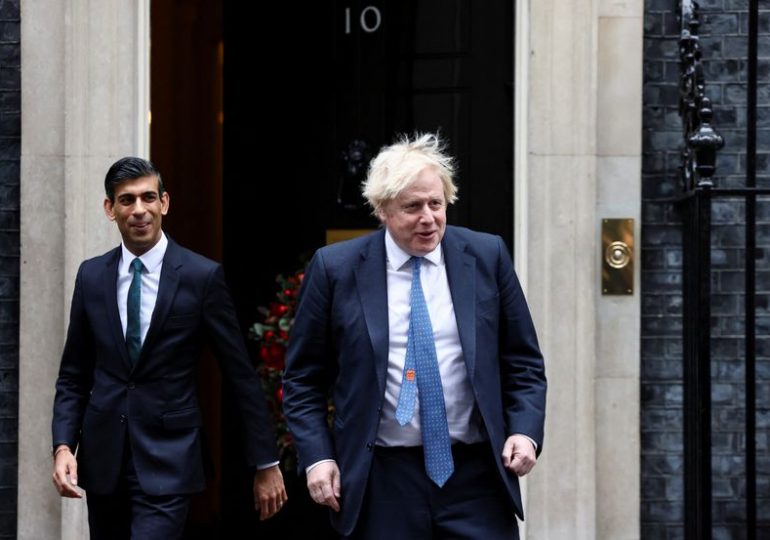LONDON (Reuters) – A planned increase in British social security contributions from workers and employers will go ahead in April, Prime Minister Boris Johnson and finance minister Rishi Sunak said, despite calls to scrap the rise due to the strain on household budgets.
With surging inflation exacerbating a cost-of-living squeeze, the government has faced growing pressure, including from some of its own Conservative lawmakers, to delay or cancel a new health and social care levy that will see the rate of National Insurance rise by 1.25 percentage points.
Some British newspapers have speculated that Johnson, who faces a possible no confidence vote https://www.reuters.com/news/picture/london-police-move-to-limit-downing-stre-idUSKBN2K20L9 over social gatherings at Downing Street during COVID-19 lockdowns, might seek to shore up support by scrapping the rise.
Writing a joint article in the Sunday Times newspaper, Johnson and Sunak said: “We must continue to be responsible now, as we deal with Covid aftershocks — and above all with the Covid backlogs in healthcare … We must go ahead with the health and care levy.”
Britain racked up its biggest budget deficit since World War Two, equivalent to 15% of gross domestic product, in the 2020/21 financial year.
The pair said that while they are “tax-cutting Conservatives” they need to be responsible with public finances.
“We believe people are the best judges of how to spend their money. We want to get through this phase and get on with our agenda,” they wrote.
“With healthy finances we will continue to drive business confidence, and with record investment we will lay the foundations for a sustained, long-term, jobs-led recovery.”
British inflation in December was its highest in nearly 30 years at 5.4%, with rising energy costs adding to the pressure on household budgets.
Johnson and Sunak said they would continue to look at the best way to support people through the post-pandemic economic recovery and were considering the best medium and long-term plan to improve the security of Britain’s energy supply.
Leave a comment

